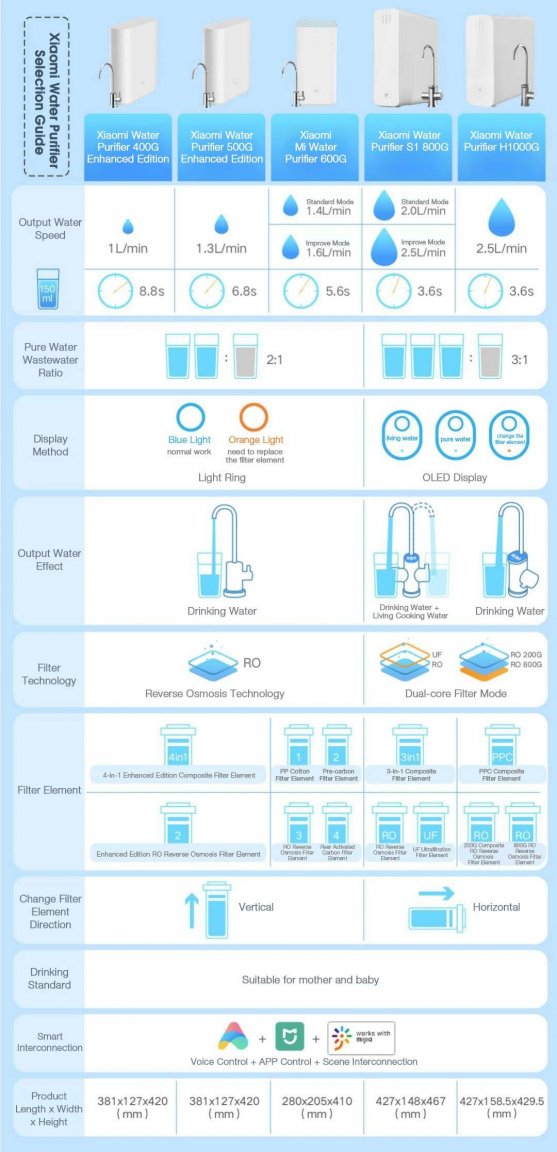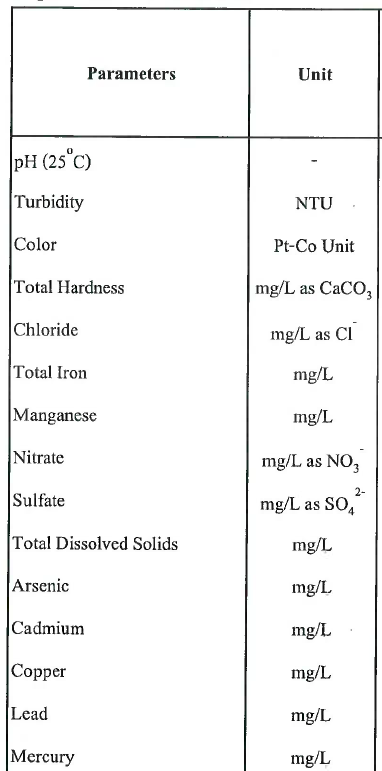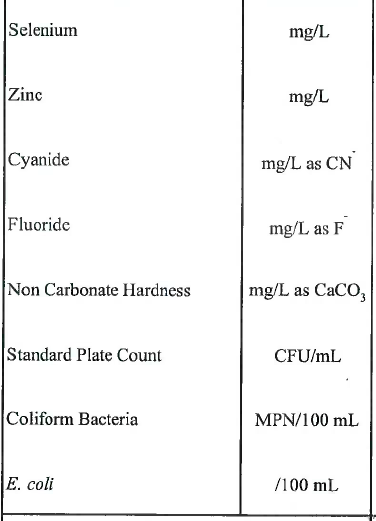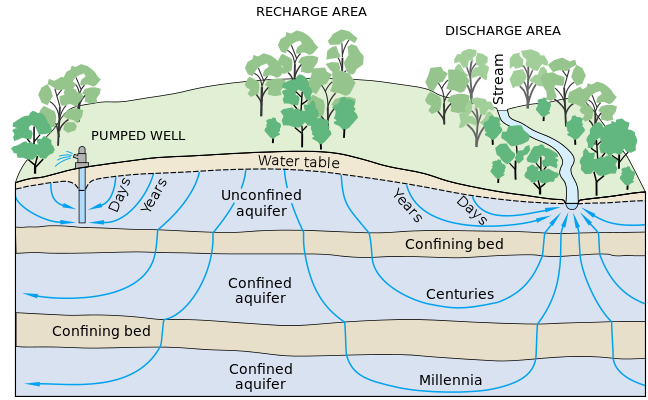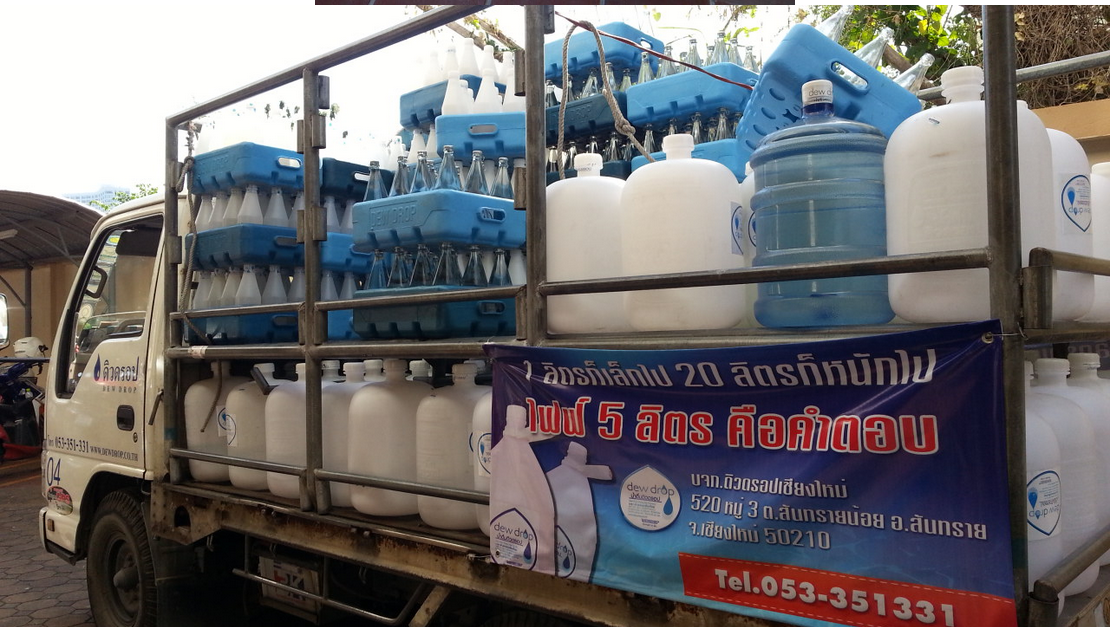
unheard
Advanced Member-
Posts
1,244 -
Joined
-
Last visited
Content Type
Events
Forums
Downloads
Quizzes
Gallery
Blogs
Everything posted by unheard
-
The arsenic content is virtually non-existent in his water. Are we looking at the same report? Fluoride is slightly elevated but still within the American EPA guidelines. His report shows slightly elevated manganese. But the most concerning part is the significant presence of Coliform Bacteria.
-
After re-reading your post... I apologize If I have misread your statement assuming that it's been done with tongue-n-cheek. I'm kind of used to very argumentative back-n-forth on this board. ????
-
With all due respect, we as consumers decide if the product is worth the price for our particular preferences and usage cases. I think the OP is fully qualified to make that decision on his own, based on the information so far provided in this thread. ????
-
UV systems are effective at elimination of bacterial loads and nothing else (when they work). The UV bulbs need to be monitored for output and cleaned when necessary. One of the reasons why UV systems are rarely used in pool sanitation - almost never on their own, usually only as a supplemental part. UV works well in RO systems attached to storage tanks where they should be kept sanitized.
-
Maybe just a dribble in "your" system. 4-6, or even 8 seconds in lower models required to fill up a glass is hardly a dribble.
-
The Chinese MG car has very similar in function 4 wheels, engine and a steering wheel, gets you from A to B and is 4-6 times cheaper than a similarly sized Merc. Must be all in the name?
-
-
I'm not sure what you're trying to say. I've paid for a comprehensive water test of my well water. That's how I became aware of its quality and if it's suitable for drinking without any treatment. Even significantly contaminated water can be purified to make it safe to drink via robust enough RO systems. I'm sure you're aware of common now commercial desalination plants or "toilet to tap" purification systems. https://borgenproject.org/toilet-to-tap-drink-water/ I'd agree with you on the point that it's impossible to judge the quality of the local companies selling RO purified water without paying for a test. But even then one can not be sure of their production consistency and especially of their bottle cleaning processes. And how is it different from the west?
-
I'm only familiar with Philips LED bulbs and lights which are considered to be good. All of them are manufactured in China. As for the undercounter RO units. I don't think there's much of a difference between the linked RO filtration units, at least in the filter materials. More likely than not all of them are using the same RO membranes. e.g. the Xiaomi RO membrane material is a GE product made in the U.S. https://www.youtube.com/watch?v=0VpNUJExyY8
-
I think your concerns are unfounded. Are you residing on/next to the geological fault? It takes a long time for any geological structure to form. Why would the recent tremors affect the existing aquifers? Thailand's seismic activity is not a recent development. It was an ongoing process for at least the last few millions years.
-
I've tested my well water. The test result came out all good on all parameters except of fluoride which is elevated.
-
If they well is properly sealed, doesn't get contaminated by surface water along the wellbore and is deep enough (more than 50 m) then it's safe to assume that the water quality in the aquifer has nothing in common with polluted surface water. Depending on the local geology and depth it might take centuries for surface water to filter through. It's also common for water to travel miles underground.
-
Are we talking about a company that distributes drinking water on trucks, similar to the one below? If yes, then they certainly do use RO.
-
If they're not obligated to display test results, then they certainly won't do that even if they regularly test their output. Yes, I've tested my drinking water at a Bangkok lab, at my own expense.
-
As far as I know all bottled water companies are regulated and do periodically lab test their product. Are you saying your local bottled water companies are not using RO? My understanding is that every company that is in the business of selling drinking water does use RO.
-
OK, you win ????
-
Can you elaborate on "Thai Colorbond"? Did you mean the Chinese/Korean metal panels? Colorbond is the higher quality grade manufactured by Bluescope in Thaland, which is the most expensive and carries the longest warranty. Bluescope also offer the lower grade called Zachs, which is cheaper with shorter warranty.
-
I'm not sure where you're getting your numbers. Are you trying to convince everyone on this thread that the cheap Red Brick - the default building material for every cheap and not so cheap house currently built in Thailand is actually horrendously expensive? Don't you see the glaring contradiction? Have you priced a house building project lately? In both, Red bricks and ACC blocks? Have you priced the labor cost differences? Do you know that most of the lower and even medium tier house builders use red bricks exclusively? Certainly not because it's such a "horrendously expensive material"...
-
@waters https://shopee.co.th/⚡️7.7ลดราคา⚡️-Mi-Water-Purifier-600G-เครื่องกรองน้ำอัจฉริยะ-MR624-เครื่องกรองน้ำ-i.309606885.6654902336?sp_atk=2a3ed35e-a744-4c0b-892b-d1ade8d6560c&xptdk=2a3ed35e-a744-4c0b-892b-d1ade8d6560c https://shopee.co.th/Philips-water-AUT2015-เครื่องกรองน้ำ-เครื่องกรองน้ํา-ro-เครื่องกรองน้ําดื่ม-เครื่องกรองน้ําประปา-เครื่องกรองน้ําระบบ-ro-i.310902722.7957156848?sp_atk=9c117894-1902-40ac-8ce4-ddfbba6656f9&xptdk=9c117894-1902-40ac-8ce4-ddfbba6656f9 https://shopee.co.th/YOMIZU-รุ่น-Kiyo-ii-เครื่องกรองน้ำ-RO-Tankless-Real-time-<deleted>-monitor-i.269977134.12225835321?sp_atk=a9368f10-a725-4ea4-939a-f894305c93cd&xptdk=a9368f10-a725-4ea4-939a-f894305c93cd
-
This is a very confusing statement. If you want to build an insulated house then It's gonna cost you tons of money as compared to a regular house cheaply built with default materials/procedures. There's no way around that. You'd also want to consider thermal properties of every other major component of the house - roof, ceiling, windows, doors. Insulated walls on their own won't make enough of a difference to justify the extra expense if the rest of the house is composed of default cheap materials. Even a cheap house can be kept sufficiently cool with just properly insulated ceiling and completely shaded from direct Sun wall/windows.
-
There are always exceptions. We're not discussing those. Just pick any high end builder. Do they employ farmers? Have you observed any high end house being built in close details? Just this year I've had an opportunity to compare building practices of two house building companies, positioned at both ends of the spectrum. The high end one was very consistent with pretty much everything: schedule, communication, on site engineering support and supervision, quality of materials and work. No major mistakes. The low end one was very good at communication, lacking on schedule, spotty with consistency of labor, with not nearly enough of oversight but still quick enough and willing to fix the out of spec parts, including the major ones like structural components (required component's demolition and rebuild). No part-time farmers employed, even at the lower end as long as it's an established company with enough of prior years sales.
-
With the expected start of production at the end of 2023?
-
How long is the warranty for the battery? And what does it cover? Let's say the warranty is 8 years long but only covers certain conditions, like full battery failure or failure to hold charge above 50% What would be the resale value of such a car after only 5 years if the battery is pretty much shot (retains 60% charge) but not covered under the warranty replacement? I think it would be a good guess to estimate that the resale value would have to include (rather subtract) the cost of the battery replacement.

